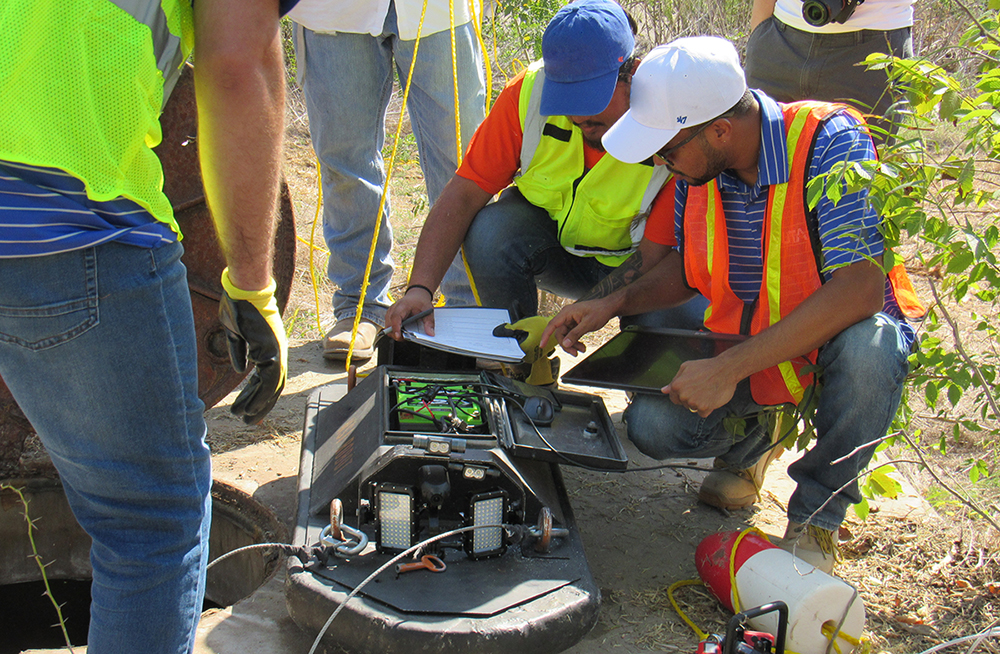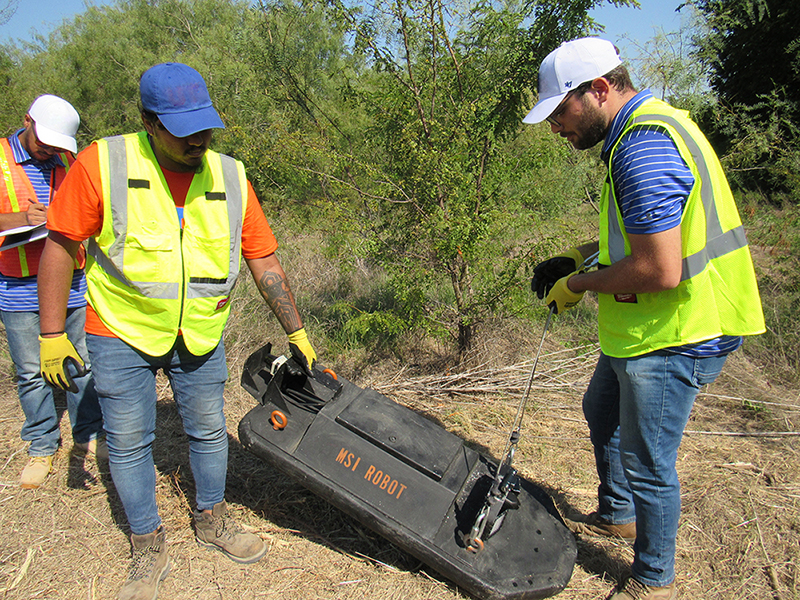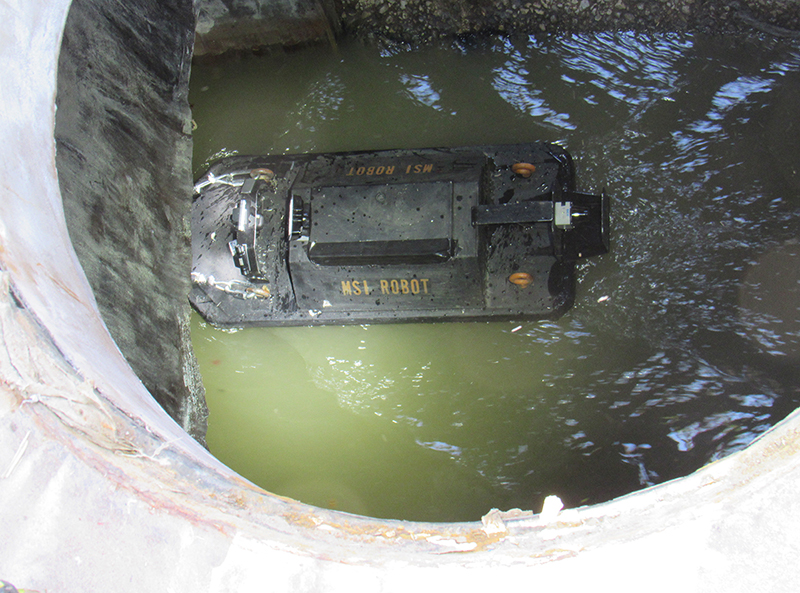
DETROIT – Ali Abolmaali has been dean of Wayne State’s College of Engineering for only two months, and already, the former chair of the Civil Engineering Department at the University of Texas at Arlington is bringing his research to Midtown.
“I have a team of 15, led by senior program manager, Sara Ridenour, to transfer some projects and secure new projects for Wayne State in Michigan,” Abolmaali said.
The Abolmaali team determines the remaining service life of pipelines through robotic inspection and artificial intelligence research, which can be as successful in Michigan as it has been in the Lone Star state. Abolmaali has secured more than $38 million in governmental grants and fundraising for his research projects including financing to inspect and predict the remaining service life of existing sewer pipeline systems throughout the Dallas/Fort Worth area.
The history of water supply and sanitation systems in the United States dates back to the 1800s when large cities built pipelines out of brick and mortar. As technology advanced over the years, so too has pipeline materials; however, only recently, have methods been developed to inspect the more than 800,000 miles of buried public sewer pipes that transverse the U.S. landscape.

Widely considered a pioneer in underground systems, Abolmaali, who has conducted several high-profile structural failure investigations for the National Transportation Safety Board, built a robot prototype to inspect wear and tear on pipelines and save cities millions in unnecessary repair and maintenance costs.
“We built robots that took us four years to complete in different stages,” said Abolmaali, who investigated the Boston tunnel and Minneapolis bridge collapses. “Now, our robots are considered to be state-of-the-art in capturing advanced lidar and sonar data to be fed into artificial intelligence algorithm developed by my team. The robotic inspection capability coupled with artificial intelligence algorithm will form the research enterprise that we are bringing to Wayne State, which will be unique in the nation with no other universities with similar capabilities.”
Now possessing five robots, the Abolmaali team inspects pipes with flow (sewer lines) or no flow (gravity or pressure lines) for structural defects and damages. The robots are equipped with lidar, sonar, panoramic 360 video camera, and a geographic information system (GIS) used to display data related to its location and where problems are found.
“The lidar captures the profile above the fluid line, and the sonar reads the data below the fluid line,” Abolmaali said.
The unmanned, multi-sensor inspection robots enter pipeline systems through manholes. As they maneuver through pipes, they offer comprehensive video views while collecting valuable structural damage data.
“That data is then automatically analyzed by our professional engineer who rates the pipeline based on national specifications,” Abolmaali said. “Once we get that rating, artificial intelligence developed by us will determine the remaining service life of the pipelines. The results from analysis may show variations in remaining service life in a stretch of pipeline; for example, the remaining service life of one section of the pipe may be more than 20 years while another section of the piple may face imminent failure. With this information, cities can prioritize their budget.”

Amit Pokharel, a research professor at the Center for Structural Engineering Research at the UTA, says the project is a tremendous asset for cities looking to plan capital investments and routine preventative maintenance programs.
“The municipalities around the Dallas/Fort Worth area are very impressed with what we’re doing,” said Pokharel, a research team member and former Abolmaali doctoral student. “The focus on underground pipes is important because they cannot always be accessible to see what’s going on inside and what builds up inside with deposits and acidic gases that build up because of the sewer, and over time they will eventually corrode.
“We have heard multiple news where there is a collapse of a system and you find sinkholes all of a sudden,” Pokharel continued. “These are the results of not having proper information on the health monitoring of the structural pipe system. Our unique expertise is to look at the structural conditions of the municipalities’ pipelines and advise them, through robotic inspection and artificial intelligent, of the remaining service life of a given pipeline section. Our aim is to ensure that we take preemptive actions in evaluating the structural health of the pipelines such that danger of catastrophic collapse is prevented. This will avoid significant damage to cities’ infrastructures and prevent major repair costs for taxpayers.”
Since arriving at Wayne State, Abolmaali has been in contact with the city of Detroit about the pipeline project. He says he welcomes a meeting soon with city officials, as well as the Great Lakes Water Authority, who operate the largest single-site wastewater treatment facility in North America.
For more information about the Wayne State College of Engineering's artificial intelligence program and data science and business analytics program visit ithe curriculum webpages.
